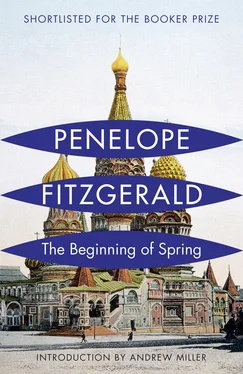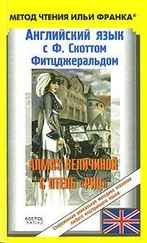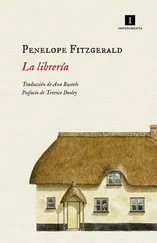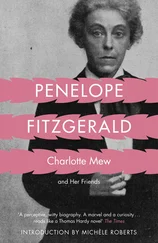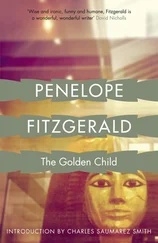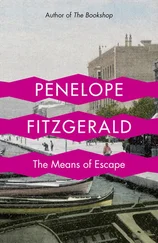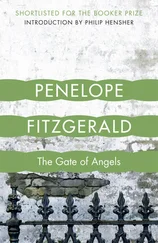The novel takes place in Russia the year before the onset of the Great War and a question likely to rise in the mind of any reader is how on earth can someone living in England in the second half of the 20th century know so much about the minutiae of day to day life in Moscow in 1913? And it’s not simply the knowing, it’s how this knowledge is set down – the when and the where of it. Research of course – what else can it be? Witchcraft? – but research so fantastically thorough, so deeply absorbed, it appears on the page as a seamless continuation of the narrative. Never a moment when we hear the noise of scenery being dragged on stage, never a moment when we doubt her.
In the busy opening pages of the book, Frank Reid, the novel’s hero, having just received the news that his wife has left him, gazes distractedly into the courtyard of his house, ‘where the winter’s stack of firewood was down by now to its last quarter. The neighbours’ oil lamps shone out here and there beyond the back fence. By arrangement with the Moscow Electrical company, Frank had installed his own twenty-five watt lighting.’
It’s just a glance, a pause in the flow of the action about the length of a breath, but it brings with it the image and idea of an entire world, and makes a slim book – under two hundred and fifty pages – feel like a big book, a book perhaps like the classic Russian novels Fitzgerald must have known well. And typing out those few lines I’m reminded of how matter-of-fact her sentences are. Restrained, clipped, unambiguous. There’s no high style in Fitzgerald, no ornamentation. Get in, say it and get out. Don’t stand there asking to be loved. A way of writing perfectly suited to the short story, the novella, the short novel. Plain water in a plain glass – or that’s what it seems until your head starts to spin.
It’s worth saying at this point what should perhaps have been said earlier: Penelope Fitzgerald is often a very funny writer and The Beginning of Spring is often a very funny book. Frank Reid is the straight man around whom the Moscow carnival spins. He is not a highly imaginative man, and though he has grown up in Moscow and speaks the language and has a deep empathetic understanding of the people, a love of them, his manner is that of a sober Edwardian gentleman, intelligent but slightly narrow, a man intent on doing the right thing while frequently being unsure what that might require of him. It is, if you like, the comedic inversion of a Marx Brothers film (that’s Duck Soup rather than Das Kapital ). Instead of three crazies causing blissful mayhem in an apparently orderly world, we have an apparently orderly man surrounded by mayhem he will not, ultimately, be able to constrain. But with Fitzgerald, comedy rarely comes without some suggestion of its reverse. In one of the novel’s most brilliantly achieved scenes, Frank looks for someone to help him take care of his three young children (Fitzgerald’s children always have the power to unnerve adults and have in her books no obvious sentimental appeal). He turns to his friend and fellow businessman, Arkady Kuraitin. ‘Arkady had children – how many Frank couldn’t say, because extra ones, perhaps nephews and nieces, perhaps waifs, or even hostages, seemed to come and go.’
Unluckily for Frank, the first occasion his children go to the Kuraitin household coincides with the arrival there of a bear cub sent as a present by one of Kuraitin’s business contacts. When it arrives, his children, in the hope of pleasing their guests, or out of sheer devilment, try to make the animal dance but it won’t. Baulked, they settle on a new game. The bear is fed saucers of vodka and is soon hopelessly drunk:
Losing its perilous balance it held out its paws like small hands and reeled onto the carpet where its claws gave it a better hold, while a gush of urine sprayed across the pattern of red and blue. For some reason one of its ears had turned inside out, showing the lining of paler skin. It rolled over several times while the dark patch spread, then sidled at great speed out of the door. All the children laughed, Dasha and Ben as well, they were all laughing and disgusted together … the bear … lumbered from end to end of the table making havoc among glass and silver, dragging at the bottle of vodka that stood in each place, upending them like ninepins and licking desperately at what was spilled. The service door flew open and the doorman, Sergei, came in, crossed himself, and without a moment’s hesitation snatched up a shovel, opened the doors of the white porcelain stove and scooped out a heap of red hot charcoal which he scattered over the bear. The tablecloth, soaked in spirits, sent up a sheet of flame. The bear screamed, its screams like those of a human child.
There is so much to notice in this scene – its deft choreography (at least five children to manoeuvre), its slide from farce into horror – but we fly through it, longing to see where Fitzgerald will take us next, and it is only when we return for a second go that we can relish a detail such as the bear’s ear having a ‘lining of paler skin’. Earlier in the same scene she writes that the bear’s fur ‘grew at all angles, except along the spine which was neatly parted …’ This is not really ‘research’ any more. It’s being someone who pays close attention to the world, someone on whom nothing is lost.
The Beginning of Spring is a well organised book and I assume Fitzgerald was a well-organised writer, or a writer able to give that impression through relentless redrafting. She said once – and we should always treat with vast caution what writers say about their methods – that before starting a novel she needed to know the first paragraph, the last paragraph, and the title, nothing else. In this instance I’m tempted to take her at her word. The first paragraph, with a kind of theatrical bluntness, sets the action in motion, while the last is a sort of faux-resolution, a moment that seems to offer the possibility of a return to good order, but which in fact promises the exact opposite. As for the title, it has its own poetry and serves, with rich irony – an irony that extends, of course, far beyond the lives of the inhabitants of 22 Lipka Street – as the book’s destination.
‘Life’, a cab driver says to Frank Reid near the opening of this novel, ‘makes its own corrections’. It’s a beautifully enigmatic line (if only cabbies really did come out with such stuff) and one that might stand as the book’s epigraph. For Frank, for his clear-eyed children, for the lovable but not quite harmless Selwyn Crane, for Moscow, for Mother Russia, life will indeed make its own corrections. Fresh confusions will replace the old, men and women will continue to mistake themselves, and in the midst of it there will be the casual glory of a world that doesn’t much care what we do.
Andrew Miller
2013
In 1913 the journey from Moscow to Charing Cross, changing at Warsaw, cost fourteen pounds, six shillings and threepence and took two and a half days. In the March of 1913 Frank Reid’s wife Nellie started out on this journey from 22 Lipka Street in the Khamovniki district, taking the three children with her – that is Dolly, Ben and Annushka. Annushka (or Annie) was two and three-quarters and likely to be an even greater nuisance than the others. However Dunyasha, the nurse who looked after the children at 22 Lipka Street, did not go with them.
Dunyasha must have been in the know, but Frank Reid was not. The first he heard about it, when he came back from the Press to his house, was from a letter. This letter, he was told by the servant Toma, had been brought by a messenger.
‘Where is he now?’ asked Frank, taking the letter in his hand. It was in Nellie’s writing.
Читать дальше
